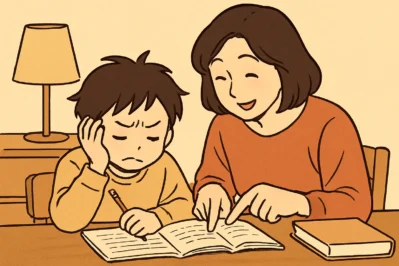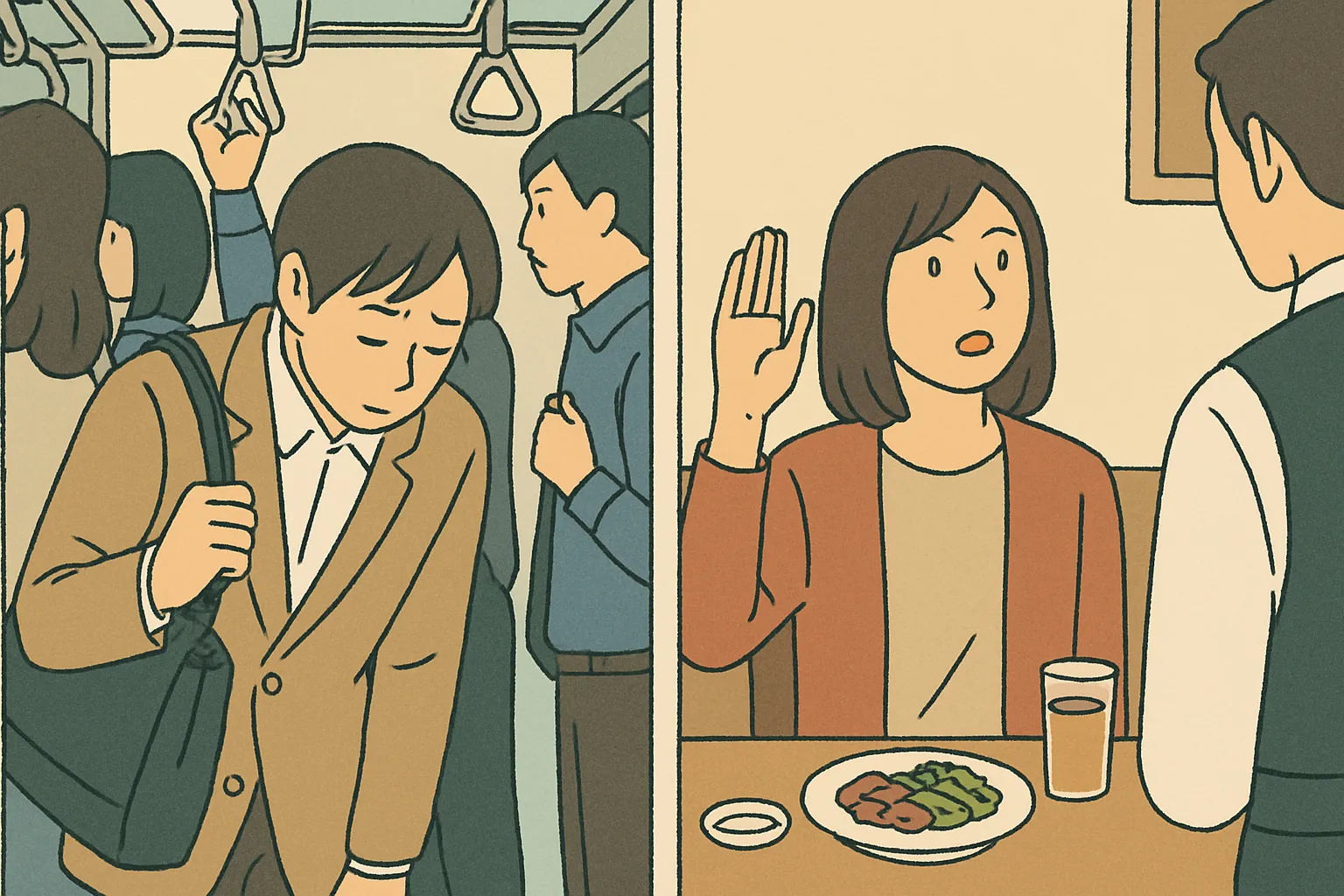Korean Parenting 101: Ace Homework Time!
Hello! This is [Maeil Hangul], here to upgrade your Korean skills!
Today, we’re diving into a very real-life situation for many parents: helping your child with their homework. Whether it’s math problems or a creative project, knowing the right words can turn a frustrating moment into a positive learning experience.
Lately in Korea, homework isn’t just about memorization anymore. Many schools are giving “thinking-based” creative homework (창의력 숙제 – chang-ui-ryeok suk-je), which often requires more parental involvement. So, let’s learn the essential phrases you need to become a super-parent homework helper and connect with your child!
Core Expressions for Homework Help
Here are three key phrases to encourage and guide your child.
1. 뭐가 어려워? (What’s difficult?)
- Pronunciation [Romanized]: Mwo-ga eo-ryeo-wo?
- English Meaning: What’s the hard part? / What are you struggling with?
- Detailed Explanation: This is a gentle and informal way to ask what the problem is. It’s much softer than “왜 못해?” (Why can’t you do it?). It shows you’re there to help, not to judge. You can use this for anything, from a single math problem to a big project.
2. 다시 한번 해 보자. (Let’s try it one more time.)
- Pronunciation [Romanized]: Da-si han-beon hae bo-ja.
- English Meaning: Let’s try it one more time.
- Detailed Explanation: The grammar
~아/어 보자means “Let’s try doing…”. It creates a feeling of teamwork. You’re not telling them, “You, do it again!” Instead, you’re saying, “We’re in this together. Let’s tackle it again.” This is incredibly encouraging for a child who feels like giving up.
3. 많이 늘었네! (You’ve improved so much!)
- Pronunciation [Romanized]: Ma-ni neu-reon-ne!
- English Meaning: You’ve really improved! / Look how much better you’ve gotten!
- Detailed Explanation: While “잘했어!” (Good job!) is great,
많이 늘었네!is a powerful phrase that focuses on progress, not just a single correct answer. The~네ending shows that you’ve just noticed this improvement, making the praise feel genuine and spontaneous. It’s perfect for when they finally understand a concept they were struggling with.
Example Dialogue
Let’s see how these phrases work in a real conversation. Imagine a child (B) is working on a school project about the new K-pop group that everyone is talking about.
- A (Parent): 표정이 안 좋네. 숙제하다가 힘든 거 있어? 뭐가 어려워?
- (You don’t look happy. Is something tough with your homework? What’s the hard part?)
- B (Child): 응… 이 아이돌 멤버들 이름이랑 순서를 외워야 하는데 자꾸 헷갈려.
- (Yeah… I have to memorize the members’ names and their order, but I keep getting confused.)
- A (Parent): 그렇구나. 괜찮아, 처음엔 다 그래. 우리 노래 들으면서 다시 한번 해 보자.
- (I see. It’s okay, everyone’s like that at first. Let’s listen to their song and try it one more time.)
- (After a few tries, the child gets it right.)
- B (Child): 아! 이제 알겠다!
- (Ah! I get it now!)
- A (Parent): 와, 아까보다 훨씬 빨리 외우는데? 많이 늘었네!
- (Wow, you’re memorizing it so much faster than before. You’ve improved so much!)
Culture Tip & Trend Deep Dive
In Korea, there’s a huge trend called 엄마표 교육 (eom-ma-pyo gyo-yuk). Literally “Mom-made education,” it refers to parents, especially mothers, taking a very active, hands-on role in their child’s learning, often creating their own supplementary study materials and teaching methods at home.
The phrases we learned today are the heart and soul of this supportive 엄마표 culture. It’s not about being a strict teacher but a patient guide. Using encouraging language like 많이 늘었네! instead of focusing only on mistakes is a key strategy Korean parents use to motivate their children amidst the country’s competitive academic environment. So when you use these phrases, you’re not just speaking Korean—you’re participating in a modern Korean parenting trend!
Wrap-up & Practice Time!
Great job today! We learned how to ask what’s wrong (뭐가 어려워?), how to encourage teamwork (다시 한번 해 보자), and how to praise progress (많이 늘었네!). These simple phrases will make homework time much more positive and productive.
Now, let’s practice!
- Fill in the blank: Your child is frustrated with a drawing. You want to suggest trying again together. You say: “우리 _______ 해 보자.”
- Make a sentence: How would you praise your child who just read a whole page of a Korean book for the first time, showing you’re impressed with their progress?
Leave your answers in the comments below using the expressions we learned today! We’d love to see how you use them. Happy studying






